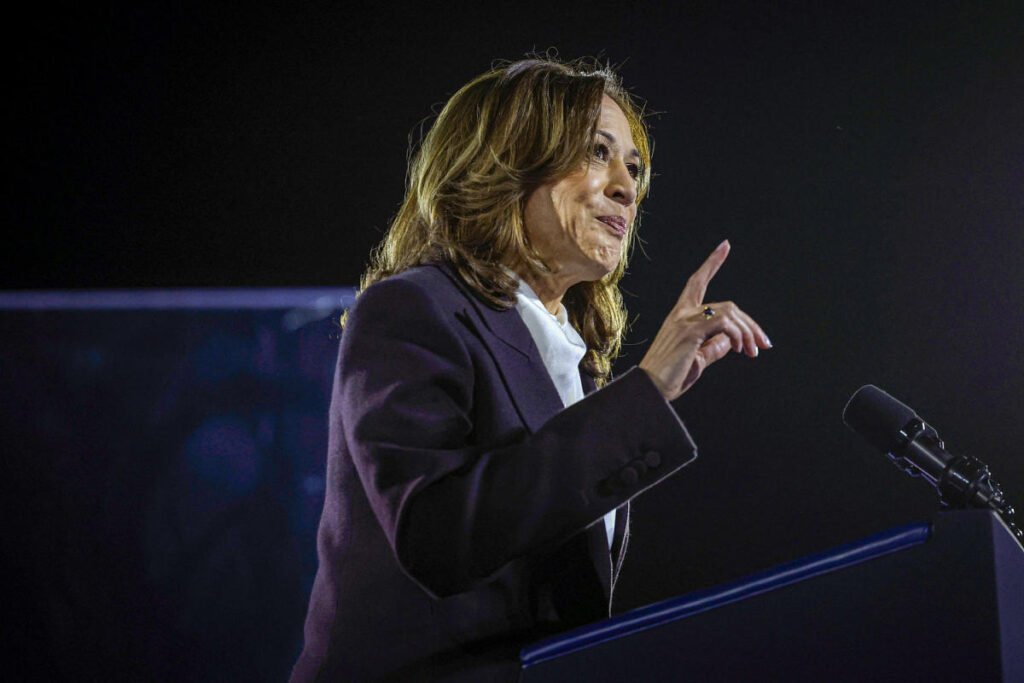In the aftermath of President Joe Biden’s remarks regarding a comedian’s discriminatory jokes about Puerto Rico at a rally attended by former President Donald Trump, Vice President Kamala Harris emphasized her strong disagreement with any critiques directed at individuals based on their political affiliations. Harris, addressing reporters at Joint Base Andrews, acknowledged Biden’s clarifications but reiterated the importance of respecting all voters, regardless of their candidate support. Her statements come at a time when political discourse in the United States is increasingly polarized and fraught with accusations, emphasizing the necessity for unity and understanding amid differing opinions.
Biden’s controversial comments were made during a video call aimed at encouraging Latino voter turnout, where he referenced the derogatory language used about Puerto Rico and underscored the decency of its residents. His mention of “garbage” was initially interpreted as an insult directed at Trump supporters, leading to a swift backlash and demands for clarification. The White House quickly issued a statement asserting that Biden aimed to condemn the hateful rhetoric utilized at the rally, not the supporters themselves. The administration sought to rectify the narrative by announcing that the President’s comments were mischaracterized, further posting a transcript to clarify Biden’s intent.
Harris took the opportunity to portray an image of leadership that includes all voices, emphasizing her belief in promoting unity rather than division. In her speeches, she has consistently welcomed dissenting opinions, positioning herself as a leader for all Americans, irrespective of their political preferences. In stark contrast to Trump’s confrontational style, Harris proposed inclusivity, stating that those who disagree with her should not be treated as adversaries but rather as integral participants in the political dialogue.
On the same day, Minnesota Governor Tim Walz backed Biden’s position, reaffirming the President’s message about inclusivity and the need for collective solutions, whether addressing rising living costs or other pressing societal issues. Walz’s statements echoed the sentiment that voters desire a unifying narrative and tangible outcomes rather than further division. This framing underscores the Democratic leadership’s approach to fostering bipartisanship in a climate where political tensions remain high.
However, criticism from within and outside the party emerged, with some Democrats, like Rep. Ruben Gallego, arguing that Biden’s language was inappropriate regardless of the intent. Despite the administration’s efforts to clarify and focus on unifying the message, lingering dissent indicates the complexity of navigating political discourse in the current climate, where even well-meaning comments can be misconstrued or provoke backlash.
Republicans have seized on Biden’s remarks to question his and Harris’s commitment to all Americans, with Trump directly challenging their leadership capability. Analysts suggest this ongoing dialogue illustrates a critical moment for Democratic leadership, showcasing the need for careful balance in communication as they attempt to re-engage a divided electorate. As both parties continue to exchange barbs, the challenge remains to elevate the conversation away from partisan rhetoric, focusing instead on the shared concerns and aspirations of all Americans as they head into the crucial upcoming election season.

